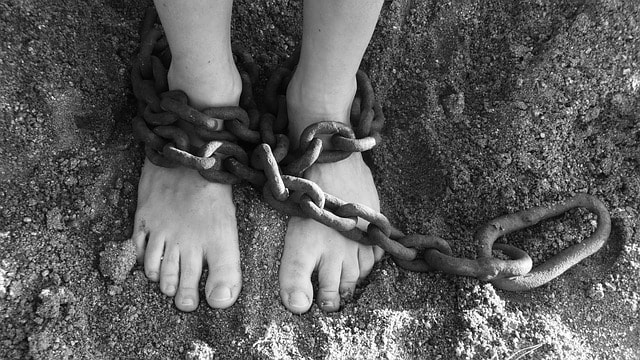Those within a pathocracy live under the constant threat of – if not amidst actually constant – psychological, as well as often physical, warfare.
We have seen how desperate pathocrats are to avoid returning to a system of normal man and the extreme lengths to which they are willing to go to maintain their power. And we have explored the fact that, since they view normals as foolish members of a likely inferior class of being – a view that they consider only further validated by their own rise to power – they have few qualms about inflicting great mental, emotional and physical harm upon them. So it should come as no surprise that pathocrats, when they believe it serves them, may engage in activities as brutal as condemning their own people to hardship and poverty in order to render them more submissive or, as previously discussed, employing violent measures, up to and including torture and murder, on a vast scale. And, since they are hypersensitive to anything that they perceive – or misperceive – as a threat to their control, pathocrats are prone to impulsively and aggressively cracking down through such measures at the slightest hint of potential subversion.
In addition, the pathological often harbor a strong desire to change these apparently misguided creatures that we call normals into people like themselves. They may try ardently to accomplish this through means ranging from disinformation to terrorism. But these efforts inevitably fail because normals are simply fundamentally different from them.
The pathological, however, cannot grasp the solidity of this fundamental difference and, thus, become quite upset when their transformational efforts fall short. Unwilling or unable to accept the basic futility of their quest, they may try to silence anyone who dares to point it out or allude to the biological nature of normals as the actual impediment and to scapegoat anyone or anything that they can falsely blame for the predictable failure.
Lobaczewski cleverly compares this absurd situation to a hypothetical one in which color blind people, having taken over a system, outlaw the act of accurately seeing colors and patrol the land, enforcing the prohibition by moving against anyone observed successfully selecting objects based on color – all while simultaneously outlawing acknowledgement of or discussion about the fact that any of this is taking place.
Given pathocrats’ harshness, as well as their incompetence, normals may wish to simply avoid any interaction with them. However, pathocrats control so many of the resources within a pathocracy that those within it are forced to “walk on eggshells,” engaging and communicating with – and even assisting - the pathological so as to get their needs met while taking delicate care not to upset them. Every day, therefore, is an exercise in, as Lobaczewski describes it, “instructing deviants while avoiding their wrath.”
Ultimately, the stresses of negotiating conditions like this wear on most of the population. Lobaczewski describes the psychophysiological shock, neurosis and immense suffering experienced by normals, and even by some of the pathological, struggling to survive within such a corrupt, delinquent, dangerous and absurd system whether in their family, business, community, nation or in several of these overlapping levels at once. Since most normals cannot become pathological or even easily adapt to the influence of those who are, contact with so much “pathological material” can damage them and they may require special forms of therapy to heal.
This damage can be even more severe in the face of extreme levels of unconsciousness and/or consciousness about what is really happening. For instance, on one hand, harm can be exacerbated when, as is so common during much of the pathocracy’s life cycle, many people within the system lack comprehension, or harbor misunderstandings, about what is being experienced. On the other hand, the consequences can be profoundly tragic for the gifted and talented, who, due to their exceptional sensitivity, are more likely to have some level of intuition about the reality of what is taking place, even as they are surrounded by others who deny or invalidate their perception or even blame the events on them. This leads many such people to back away from most others and attempt to spend time only with those who share their understanding.
Meanwhile, none of this is even to mention the devastation experienced by nonhumans and the rest of our ecosystem under the influence of pathocracy.
Excerpt from "PATHOCRACY" by Howard Ditkoff
Image courtesy Pixabay


 RSS Feed
RSS Feed
